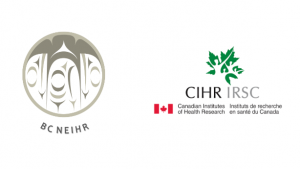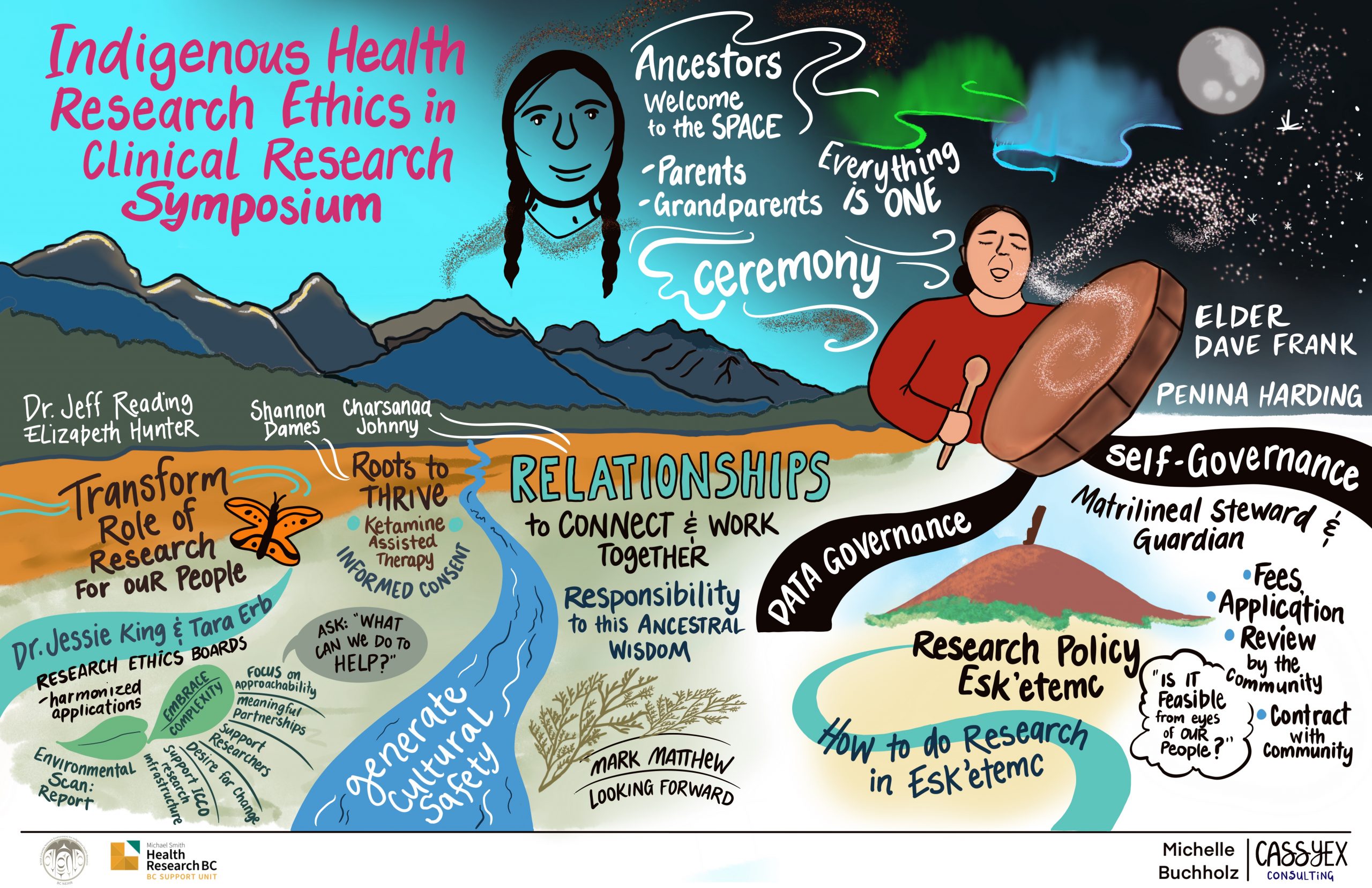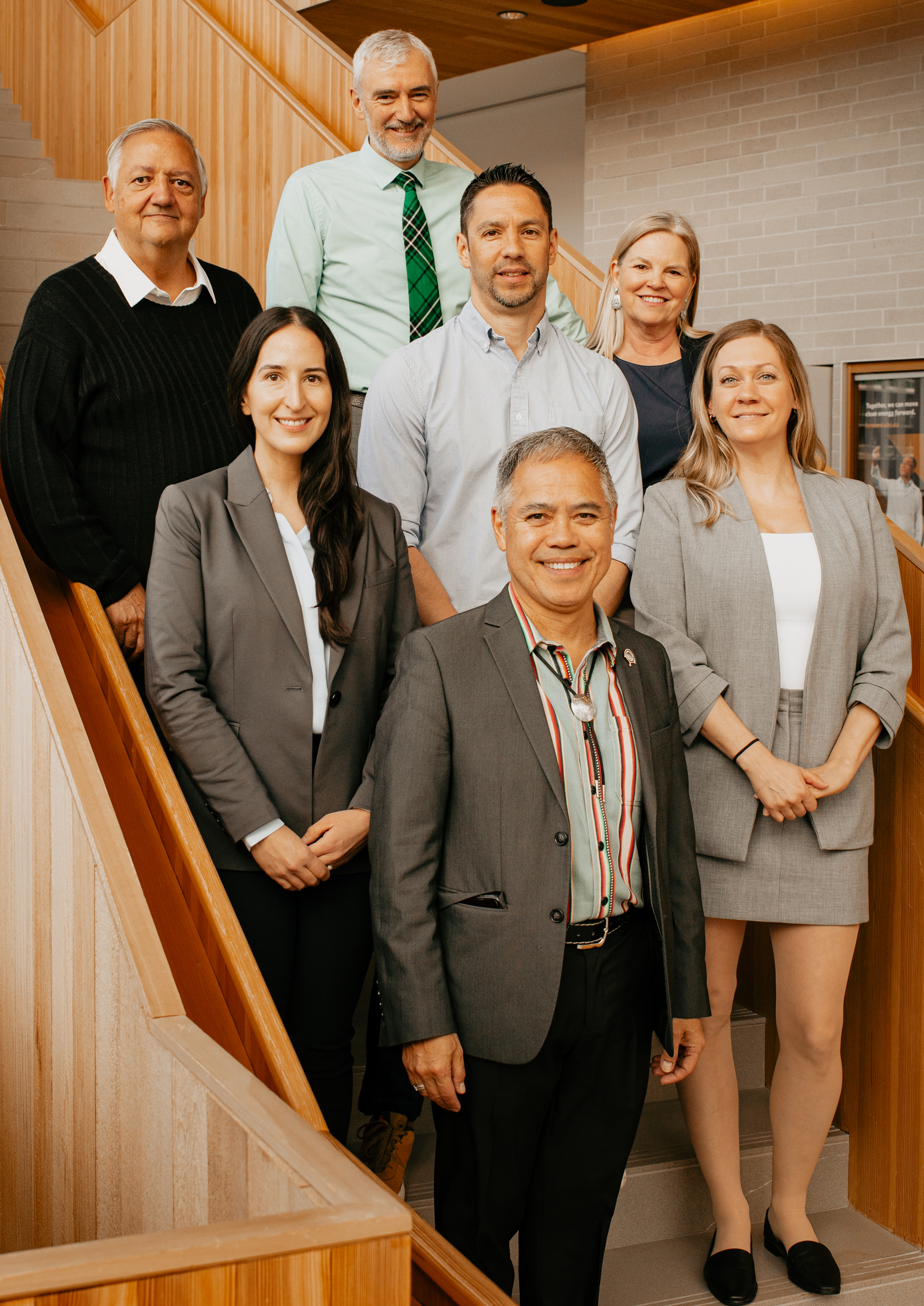For more information, visit the Graduate and Postdoctoral Funding page on our website. Please carefully read through the Overview & Instructions and Frequently Asked Questions on the website as there have been important changes to the terms and conditions of the awards.
After carefully reviewing all the information available on the website, which should answer most questions, if you then have further questions, please email bcneihr@uvic.ca.
Please note that you must be a registered member of the BC NEIHR to apply. Get your registration in early by filling in the Registration Survey and emailing it to admin_bcneihr@uvic.ca.
Deadline: March 15, 2025
Announcement: Moving to Centre for Collaborative Action on Indigenous Health Governance (CCAIHG), Simon Fraser University (SFU)
We are thrilled to share that over the coming months, we will be moving to the Centre for Collaborative Action on Indigenous Health Governance (CCAIHG) at Simon Fraser University (SFU) under the leadership of Dr. Krista Stelkia (Nominated Principal Investigator). CCAIHG is an Indigenous-led research centre that paves a transformative path for Indigenous people, communities, and scholars to learn from and share their experiences on Indigenous health governance. For more information about CCAIHG, please visit their website. As we plan the migration behind the scenes, we will continue to use the UVic website until our new SFU website is complete. The upcoming funding calls for graduate and postdoctoral awards will also be shared on the UVic website. Please view our “Funding” tab for up-to-date information regarding application details and deadlines.
About BC NEIHR:
Funded by the CIHR Institute of Indigenous Peoples’ Health (IIPH), the BC NEIHR is one of nine Indigenous-led networks across Canada that support research leadership among Indigenous (First Nations, Métis and Inuit) communities, collectives and organizations (ICCOs). The purpose of the Network Environments for Indigenous Health Research Program is to establish a national network of centres focused on capacity development, research and knowledge translation (KT). This network of centres provides supportive research environments for Indigenous health research led by, and grounded in, Indigenous communities in Canada.
This five-year program also supports Indigenous student research as well as facilitates community-led research partnerships between ICCOs, students, researchers and organizations. Through an extensive network of experienced and dedicated members and partners, including the First Nations Health Authority, BC Association of Aboriginal Friendship Centres, and Métis Nation BC, the BC NEIHR supports an Indigenous-led provincial health research agenda.
Woven from the values, knowledge systems, priorities and leadership of Indigenous Peoples in BC, our collective vision is to contribute to the improved health, wellbeing and strength of Indigenous Peoples by:
- Supporting Indigenous Health Research Leadership
- Supporting Culturally Safe and Ethical Indigenous Health Research
- Supporting Indigenous Health Research Development
- Supporting Indigenous Health Research Capacity Development
Indigenous Health Research Ethics in Clinical Research Symposium 2024
On April 16th, 2024, the BC Network Environment for Indigenous Health Research (BC NEIHR) and the BC SUPPORT Unit, Michael Smith Health Research BC co-hosted the Indigenous Health Research Ethics in Clinical Research Symposium, with support from the Centre for Collaborative Action in Indigenous Health Governance (CCAIHG). Nearly 100 guests attended the symposium, including Indigenous community members, health researchers, trainees, allies and research ethics board members and health systems leaders. The symposium was hosted on the traditional and unceded territory of the hən̓q̓əmin̓əm̓ speaking xʷməθkʷəy̓əm (Musqueam) people, at the University of British Columbia.
The symposium aimed to:
Advance the engagement and understanding of Indigenous health research ethics in clinical research
Support research talent development opportunities for Indigenous scholars, students, and early-career clinicians and researchers
Provide networking and mentorship opportunities
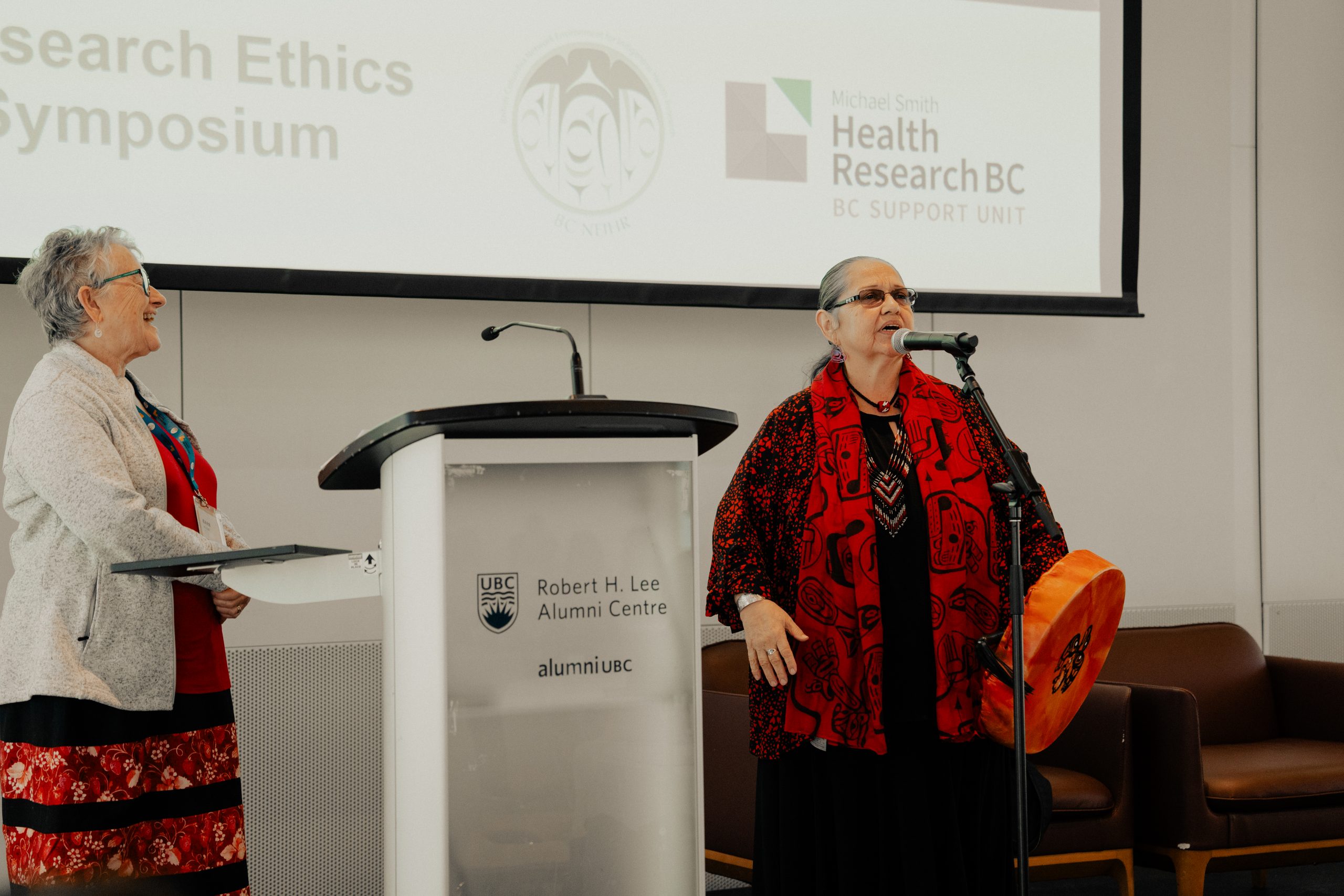
The day began with an opening prayer by Elders Barb Hulme and Glida Morgan, followed by welcoming remarks from Dr. Krista Stelkia, Co-Director of CCAIHG, Tara Erb, Network Coordinator for BC NEIHR, Dr. Stirling Bryan (Scientific Director, BC SUPPORT Unit), and Gillian Corless (Senior Manager, Indigenous Partnerships, Michael Smith Health Research BC).
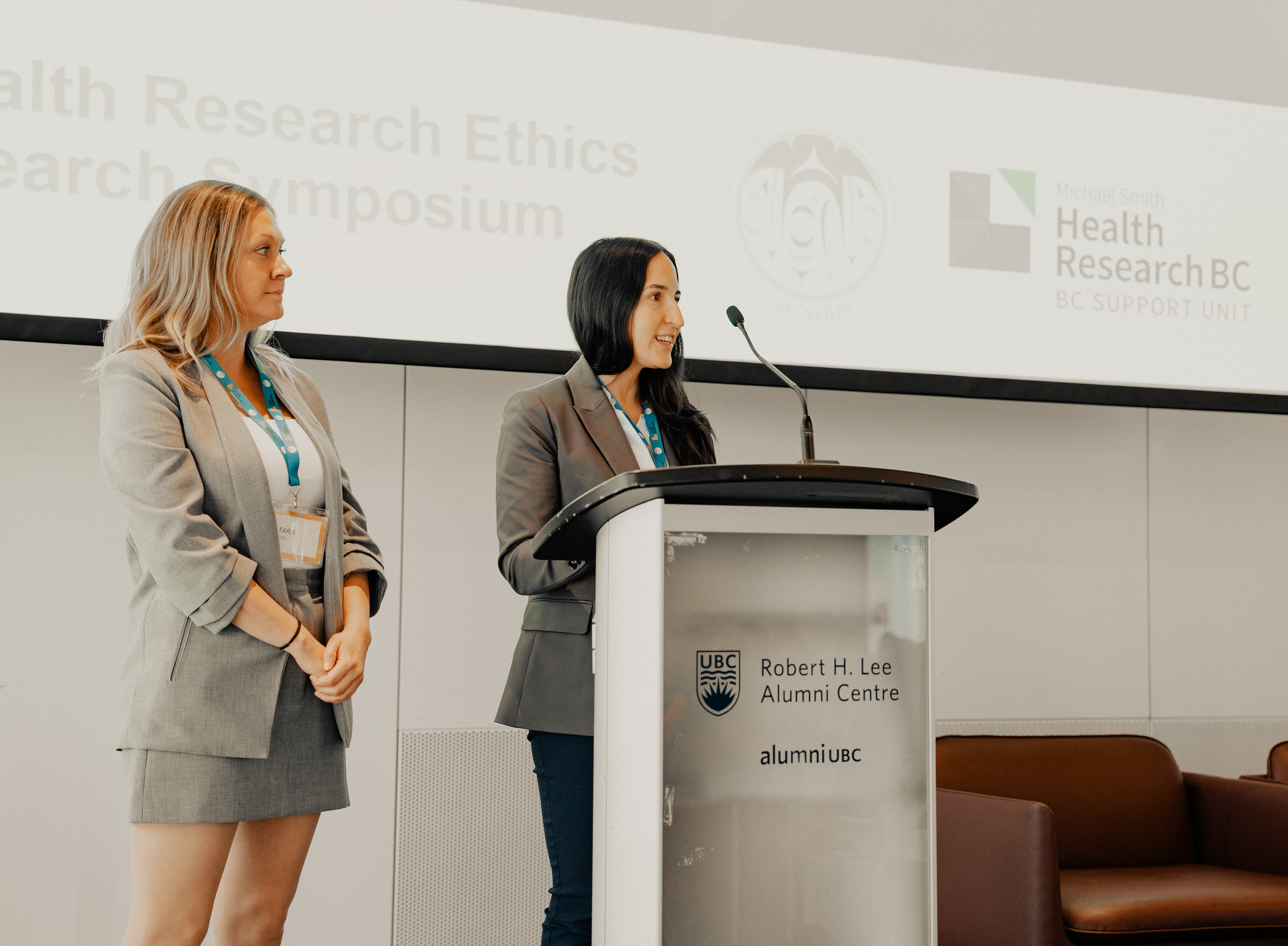
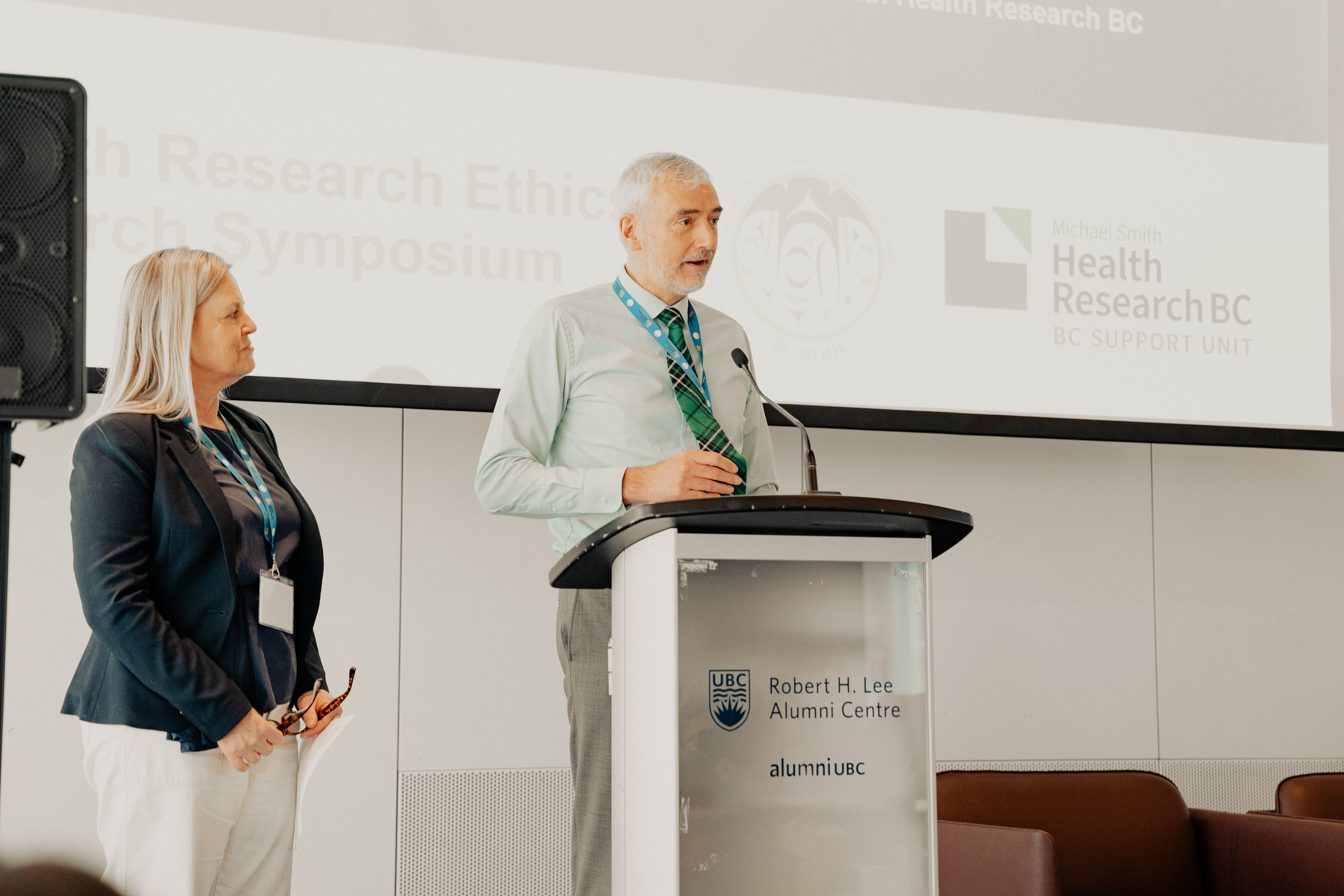
Following, Dr. Evan Adams (Deputy Chief Medical Officer, First Nations Health Authority) provided a keynote presentation sharing his professional and personal reflections as an Indigenous physician and researcher, navigating the colonial harms and racism within the health care system while also upholding his family and Tla’amin values, teachings and practices. In closing, Dr. Adams shared two key pieces of advice to the audience; 1) to bring a daily commitment to ethical practice and 2) to remember that resilience is resistance.
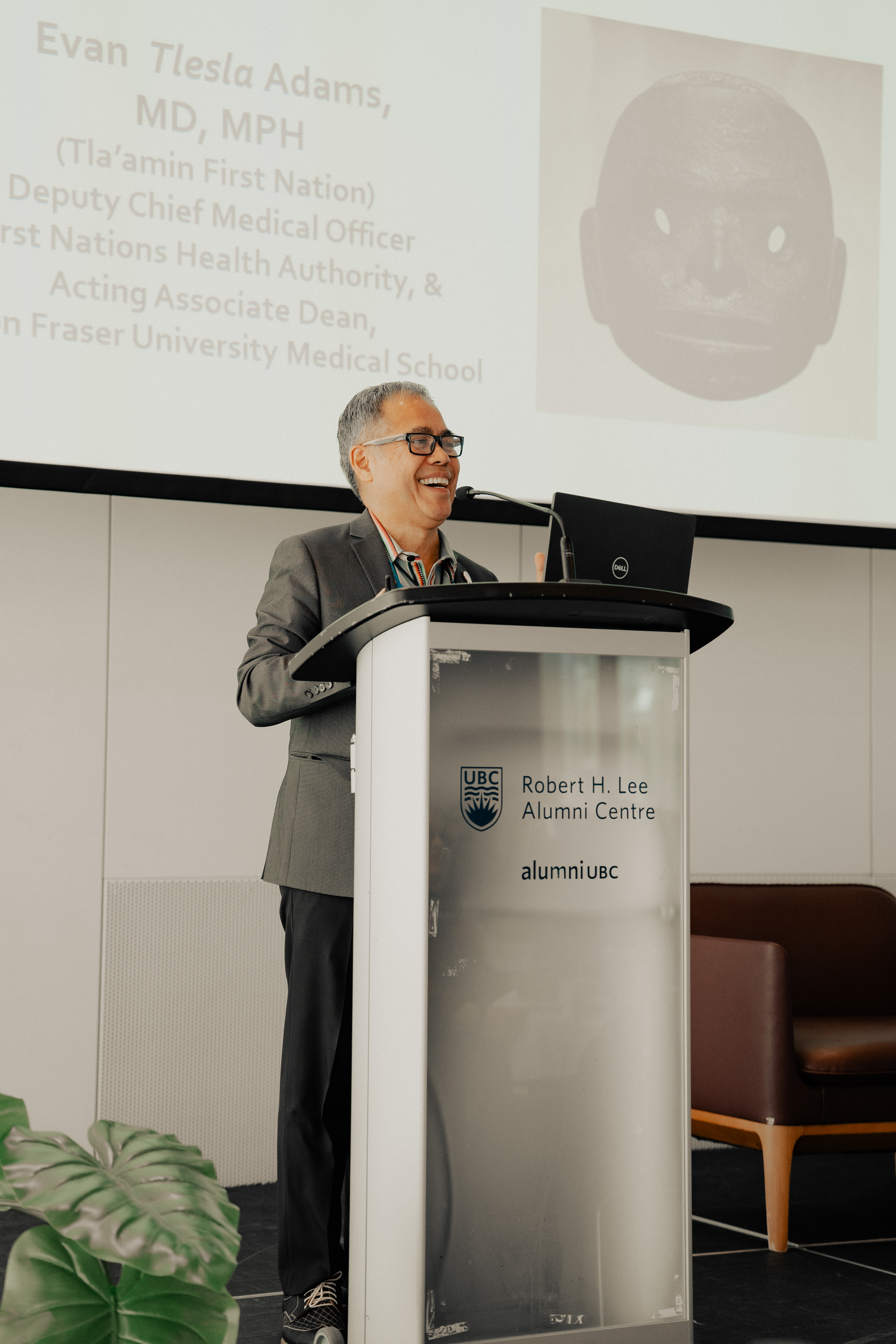
Within the overarching topic of Indigenous research ethics, some key themes emerged throughout the day. Many presentations discussed the importance of Indigenous data sovereignty. The necessity for Indigenous leadership and ownership of research was stressed, as well as the importance of communities taking active roles in research. Research should be led by communities, focusing on their needs and participation, rather than non-Indigenous researchers’ goals. Self-determination in research is essential.
Conducting research with Indigenous communities must prioritize Indigenous community values. As non-Indigenous partners, whiteness must be de-centered, researchers must come prepared and educated, and remember that it is not the responsibility of the community to educate non-Indigenous researchers. The symposium fostered meaningful discussions and connections among attendees, with commitments made for future collaboration in Indigenous health research.
Read the full BC NEIHR report on the event here.
Leaders supporting the Indigenous Health Research Ethics in Clinical Research Symposium. Left to right, top to bottom: Dr. Jeffrey Reading, Dr. Stirling Bryan, Dr. Krista Stelkia, Mark Matthew, Gillian Corless, Dr. Evan Adams, Tara Erb.
Are you an Indigenous community, collective and organization (ICCO), health system partner, and/or allied health organization interested in collaborating on future knowledge-sharing mobilization gatherings with the BC NEIHR and CCAIHG? Reach out to our teams at BC NEIHR: bcneihr@uvic.ca and CCAIHG: indigenoushealthgovcentre@sfu.ca
